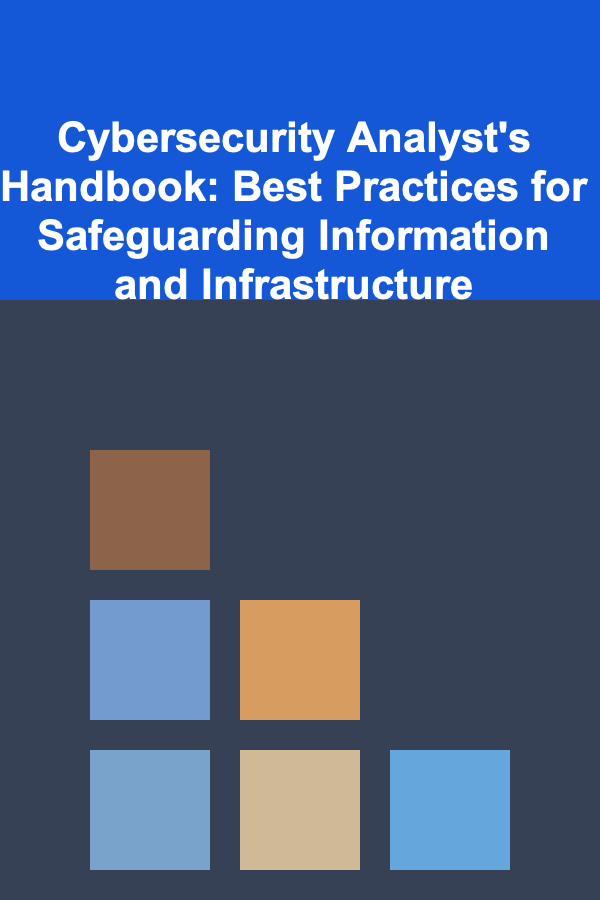10 Tips for Budget Tracking as a Freelancer
ebook include PDF & Audio bundle (Micro Guide)
$12.99$8.99
Limited Time Offer! Order within the next:
Freelancing offers a unique level of freedom, flexibility, and autonomy, but it also comes with its own set of financial challenges. Without the stability of a regular paycheck, managing your finances can feel daunting. If you're a freelancer, keeping track of your income and expenses is critical to maintaining financial health, ensuring you're saving for future goals, and keeping the taxman at bay.
To thrive as a freelancer, you need to implement an effective budgeting strategy that allows you to manage your finances proactively. Budget tracking doesn't just mean recording numbers; it's about understanding your financial situation, planning ahead, and ensuring you can cover your expenses while growing your freelance business. Below are 10 tips that will help you stay on top of your financial game as a freelancer.
Track Your Income & Expenses Regularly
The foundation of good budget tracking is consistently monitoring both your income and expenses. As a freelancer, your income is likely to vary from month to month, so knowing exactly how much you're earning at any given time will help you plan better.
How to Track:
- Use accounting software (like QuickBooks, FreshBooks, or Xero) to track income and expenses in real time. These tools can automatically categorize and update transactions.
- Set a weekly or bi-weekly review to check in on your income and expenses.
- Keep receipts and invoices organized to ensure you never miss out on documenting business-related purchases.
Why It's Important:
Tracking regularly prevents financial surprises and allows you to adjust your spending, making sure you're living within your means. It also ensures you're aware of patterns in your income so you can plan ahead.
Set Up a Separate Business Account
One of the best ways to track your freelance income and expenses accurately is by separating personal and business finances. This step simplifies the process of tracking money coming in and going out of your business, which is essential for both budgeting and tax purposes.
How to Set It Up:
- Open a business checking account and use it solely for your freelance work.
- Use a business credit card for any business-related purchases (subscriptions, software, travel, etc.).
- Avoid using personal accounts for any business-related transactions.
Why It's Important:
Keeping finances separate reduces the risk of mixing personal and professional expenses, making it much easier to track profits, prepare tax filings, and avoid overspending. It also provides a clear view of your business's financial health.
Create a Realistic Budget
A realistic budget is essential for staying financially healthy as a freelancer. Unlike a traditional job with a predictable salary, your income as a freelancer will fluctuate. A budget based on expected income---taking into account your slow months---can help you avoid financial stress when work slows down.
How to Create It:
- Estimate your average monthly income by reviewing your past projects. Even though income may fluctuate, try to identify trends.
- List all your fixed expenses (e.g., software subscriptions, office rent, utilities).
- Include variable expenses like office supplies, marketing, and networking costs.
- Set aside a portion for savings and emergency funds (aim for 3-6 months' worth of living expenses).
Why It's Important:
A budget helps you set clear financial goals and avoid overspending. It also prepares you for lean months, ensuring you don't run into trouble when work is scarce.
Save for Taxes
As a freelancer, taxes are often the biggest financial headache. Since you're responsible for both the employee and employer portions of taxes (like self-employment tax in the U.S.), it's crucial to budget and save for these payments throughout the year.
How to Save:
- Set aside 25-30% of your monthly income for taxes, depending on your tax bracket.
- Use a tax calculator (many accounting tools offer this) to estimate your quarterly tax payments.
- Open a separate tax savings account and transfer the designated tax amount monthly.
Why It's Important:
Failing to save for taxes could result in hefty tax bills come April or whenever your taxes are due. By budgeting for taxes monthly, you can avoid scrambling for cash during tax season and ensure you're in good standing with the IRS or tax authority in your country.
Plan for Slow Periods
In freelancing, there will inevitably be months when work slows down. Without the luxury of paid time off, freelancers need to plan for these slower periods. By budgeting with future down months in mind, you can smooth out the financial gaps and prevent stress when things aren't as busy.
How to Plan:
- Build a buffer savings account with enough funds to cover 1-3 months of living expenses.
- Review past slow periods to predict when these might occur.
- If possible, save a little extra when business is booming, so you have more cash to draw from during lean times.
Why It's Important:
Having a financial cushion allows you to take a break or navigate slow periods without worrying about covering your basic expenses. This gives you the freedom to stay focused on your work without stressing about money.
Track Project-Based Income
As a freelancer, you might work on multiple projects with different clients, and each project may have its own payment terms. Tracking each project's income separately is key to understanding your overall profitability and managing cash flow effectively.
How to Track:
- Use project management software (such as Trello, Asana, or Monday.com) to track payments, deadlines, and expenses related to each project.
- Record payments and project-specific expenses separately in your accounting tool or spreadsheet.
- Set reminders for payment due dates so you never miss an invoice.
Why It's Important:
Understanding which projects are most profitable can help you prioritize and scale your business. Tracking income by project also helps you spot potential issues with clients (like delayed payments) and ensures you're always paid what you're owed.
Account for Business Expenses
As a freelancer, many of your business-related expenses are tax-deductible. Keeping track of these expenses throughout the year will not only help you with budgeting but will also make tax time much easier.
Types of Deductible Expenses:
- Office equipment (computer, printer, desk).
- Software subscriptions (Adobe Creative Suite, project management tools).
- Business-related travel (flights, hotels, meals).
- Marketing (website hosting, ads).
- Professional services (legal or accounting fees).
How to Track:
- Use a digital or physical system to organize receipts, invoices, and bills.
- Input expenses into your accounting software regularly, categorizing each one for tax purposes.
Why It's Important:
By tracking deductible expenses, you can lower your taxable income and reduce the amount of taxes you owe. Additionally, being aware of your business spending allows you to make smarter decisions about where to cut costs or reinvest.
Establish an Emergency Fund
Freelancers face the challenge of irregular income, so having an emergency fund is crucial for providing peace of mind and protecting yourself in the event of unexpected circumstances (such as an illness or major client delays).
How to Build It:
- Set a goal to save 3-6 months' worth of living expenses.
- Consider automating transfers to your emergency fund each month to make the process easier.
Why It's Important:
An emergency fund gives you a safety net, allowing you to handle unexpected expenses or periods of unemployment without derailing your budget.
Use Budgeting Apps or Tools
Technology can be a freelancer's best friend when it comes to managing finances. Budgeting apps and tools help automate the process, categorize spending, and give you insights into your cash flow.
Recommended Tools:
- Mint or YNAB (You Need A Budget) for tracking both business and personal finances.
- QuickBooks or FreshBooks for freelancers to track income, create invoices, and handle taxes.
- Expensify for managing receipts and expense reports.
Why It's Important:
Using apps and tools makes budget tracking faster, more accurate, and more efficient. Automation helps reduce the likelihood of missing out on important financial details, and many tools offer reports that make tax filing a breeze.
Review and Adjust Your Budget Regularly
Your financial situation will evolve as your freelance career grows. Therefore, it's important to regularly review your budget and adjust it according to changes in income, expenses, and financial goals.
How to Review:
- Set a monthly financial check-in to review income, expenses, savings, and tax payments.
- Assess whether your business expenses are increasing, or if new income streams are opening up.
- Adjust your savings rate or emergency fund goal as needed.
Why It's Important:
By reviewing your budget regularly, you can catch any potential problems early and adjust accordingly. If you're making more money than expected, you can increase savings or reinvest in your business. If work slows down, you can adjust spending accordingly.
Conclusion
Budget tracking is a cornerstone of financial stability for freelancers. By implementing these 10 tips, you can take control of your finances, avoid surprises, and ensure you're financially prepared for both good and bad months. Ultimately, good budget tracking allows you to enjoy the benefits of freelancing---freedom and flexibility---without the stress of financial uncertainty.
Reading More From Our Other Websites
- [Organization Tip 101] How to Declutter Your Dining Room Before Hosting Guests
- [Home Storage Solution 101] How to Organize Your Kitchen with Creative Storage Solutions
- [Home Cleaning 101] How to Clean Your Oven with Natural Ingredients
- [Home Lighting 101] How to Use Lighting to Make Your Home Feel More Luxurious
- [Home Storage Solution 101] How to Store Kitchen Appliances Out of Sight
- [Home Budget 101] How to Cut Your Home's Cleaning Costs and Still Keep It Tidy
- [Home Soundproofing 101] How to Soundproof a Basement to Eliminate Echo
- [Personal Care Tips 101] How to Choose Lip Balm That Enhances Your Lip's Natural Color
- [Home Budget 101] How to Save Money on Home Insurance: Tricks to Lower Your Premiums
- [Home Maintenance 101] How to Keep Your Home's Bathroom Fixtures in Good Working Condition

Cybersecurity Analyst's Handbook: Best Practices for Safeguarding Information and Infrastructure
Read More
How to Create a Cardio Corner in Your Home Gym
Read More
How to Sell Digital Products Successfully For Authors: An Actionable Guide
Read More
How to Use a Pressure Cooker Safely and Effectively
Read More
10 Tips for Automating Customer Support Engineering Tasks
Read More
How to Sew PDF Sewing Patterns with Confidence
Read MoreOther Products

Cybersecurity Analyst's Handbook: Best Practices for Safeguarding Information and Infrastructure
Read More
How to Create a Cardio Corner in Your Home Gym
Read More
How to Sell Digital Products Successfully For Authors: An Actionable Guide
Read More
How to Use a Pressure Cooker Safely and Effectively
Read More
10 Tips for Automating Customer Support Engineering Tasks
Read More